Cashew butter
Preparation time5 min
Waiting time3 min
Cooking time3 min
Ready in11 min
An excellent source of protein, fiber, vitamins, minerals and antioxidants
Cashew butter is an excellent source of protein, fiber, vitamins, minerals and antioxidants
Servings: 23 servings
~460g cashew butter, ~23 servings per 20g serving
Ingredients
Estimated cost: 7.2 €
Materials
- - mixer/blender with container, for grinding cashew nuts
- - containers
- - tray or pan for baking the cashew nuts ~3 minutes
Preparation
 We prepare the ingredients (cashew nuts, oils) and measure the quantities!
We prepare the ingredients (cashew nuts, oils) and measure the quantities!
Although cashews are quite sweet, if you want an even sweeter butter and if you don't have a sweet tooth, you can also add 1-2 teaspoons of honey.
Also, that pinch of salt is optional and not recommended for those suffering from cardiovascular conditions. Bake the cashew nuts in a tray, in the oven, at 180º C, for ~3-5 minutes! Cashews can also be baked in a pan, on medium heat. It is good to mix with a wooden spoon and we have to be careful because it can burn. When the cashew turns slightly copper, it means it is ready. Basically, by drying/baking, the fats will be released more easily and we will ensure obtaining a creamy paste.
Bake the cashew nuts in a tray, in the oven, at 180º C, for ~3-5 minutes! Cashews can also be baked in a pan, on medium heat. It is good to mix with a wooden spoon and we have to be careful because it can burn. When the cashew turns slightly copper, it means it is ready. Basically, by drying/baking, the fats will be released more easily and we will ensure obtaining a creamy paste. After they have been baked, the cashew nuts are left to cool slightly (2-3 minutes), after which they will be ground with the help of a mixer robot.
After they have been baked, the cashew nuts are left to cool slightly (2-3 minutes), after which they will be ground with the help of a mixer robot.
Mixing/grinding times differ from machine to machine (mixer), between 30 seconds and 1-2 minutes, but it is best to orient yourself visually. Optional step, in case we want to get a crunchy cashew butter:
Optional step, in case we want to get a crunchy cashew butter:
⚠ If we want to get a cashew crunchy butter, we will stop mixing when the crushed cashew nuts are the desired size, take out part of them (~¼) and put them in a container aside.
With the rest of the cashew, we will continue mixing until a floury, oily paste is reached. When a floury, oily paste is reached, add the other ingredients to the mixer bowl: grape seed oil, coconut oil and optionally salt. We mix until a creamy paste is formed (cashew butter) (~30 seconds - 1 minute). If the paste sticks to the walls of the mixer bowl, stop the mixer, use a spatula (or wooden spoon), stir a few times to loosen the walls, and then continue mixing.
When a floury, oily paste is reached, add the other ingredients to the mixer bowl: grape seed oil, coconut oil and optionally salt. We mix until a creamy paste is formed (cashew butter) (~30 seconds - 1 minute). If the paste sticks to the walls of the mixer bowl, stop the mixer, use a spatula (or wooden spoon), stir a few times to loosen the walls, and then continue mixing. Optional step, for the case of the crunchy butter: at the end, when the paste (butter) has the desired consistency, add the cashew crushed into coarser pieces. Blend for ~20 seconds and/or mix well with a spatula / wooden spoon until the coarsely ground cashews are well incorporated into the cashew paste / butter.
Optional step, for the case of the crunchy butter: at the end, when the paste (butter) has the desired consistency, add the cashew crushed into coarser pieces. Blend for ~20 seconds and/or mix well with a spatula / wooden spoon until the coarsely ground cashews are well incorporated into the cashew paste / butter. Transfer the formed cashew butter into a container and keep it in the refrigerator, necessarily covered with a lid or food foil (as tight as possible).
Transfer the formed cashew butter into a container and keep it in the refrigerator, necessarily covered with a lid or food foil (as tight as possible).
This cashew butter can be stored in the fridge for up to 3 months, but we recommend making small amounts and consuming them within a few days.
Administration
Cashew butter is a versatile preparation, with a special (delicious) taste that can be consumed as such or in various preparations.
Cashew butter ideal for breakfast, as an addition to oatmeal or eaten as a spread (on slices of bread) or rounds).
Ideally, it is recommended ~10-20 grams of butter per day, consumed in the morning, at breakfast.
A spoonful 1-2 times a day.
⚠ Cashew butter is a caloric product, and therefore it is recommended, not to exceed 40 g of cashew butter per day for an adult weighing ~80 kg.
It can be consumed for long periods of time, with the recommendation to take a break of 1-2 weeks after 2-3 months.
Cashew butter ideal for breakfast, as an addition to oatmeal or eaten as a spread (on slices of bread) or rounds).
Ideally, it is recommended ~10-20 grams of butter per day, consumed in the morning, at breakfast.
A spoonful 1-2 times a day.
⚠ Cashew butter is a caloric product, and therefore it is recommended, not to exceed 40 g of cashew butter per day for an adult weighing ~80 kg.
It can be consumed for long periods of time, with the recommendation to take a break of 1-2 weeks after 2-3 months.
Observations
Oils
→ The amount of oils used can vary depending on how thin or thick you want your cashew butter to be.
→ Also, any type of oil can be used, but an oil with a neutral taste is recommended so as not to alter the basic taste of the main ingredient - cashew nuts. For example, grape seed oil has a neutral taste, but it is also very valuable from a nutritional point of view. Coconut oil is a very good binder, especially when the product is refrigerated, helping to solidify and creaminess.
An excellent source of protein, fiber, vitamins, minerals and antioxidants
→ Cashew butter is a butter rich in protein and carbohydrates.
→ Due to the protein source, cashew butter has a positive effect on bone health and especially on the growth and maintenance of muscle mass.
→ Cashew butter is rich in minerals such as phosphorus, copper, iron, magnesium, selenium, zinc. Magnesium and iron help boost energy, reducing fatigue and exhaustion. Zinc helps maintain healthy hair, nails and skin.
→ Cashew butter has less omega 3 fats than other types of butter (peanuts, almonds, walnuts).
Nutritional information / 100 g of cashew butter:
→ To keep hermetically closed, in a cool, dark and dry place, ideally in the refrigerator.
→ Shelf life: can be kept in the refrigerator, hermetically sealed up to 3 months.
→ Once opened, consume it as soon as possible, maximum one month.
→ It is recommended to prepare small quantities, so that they can be consumed in the shortest possible time.
→ The amount of oils used can vary depending on how thin or thick you want your cashew butter to be.
→ Also, any type of oil can be used, but an oil with a neutral taste is recommended so as not to alter the basic taste of the main ingredient - cashew nuts. For example, grape seed oil has a neutral taste, but it is also very valuable from a nutritional point of view. Coconut oil is a very good binder, especially when the product is refrigerated, helping to solidify and creaminess.
An excellent source of protein, fiber, vitamins, minerals and antioxidants
→ Cashew butter is a butter rich in protein and carbohydrates.
→ Due to the protein source, cashew butter has a positive effect on bone health and especially on the growth and maintenance of muscle mass.
→ Cashew butter is rich in minerals such as phosphorus, copper, iron, magnesium, selenium, zinc. Magnesium and iron help boost energy, reducing fatigue and exhaustion. Zinc helps maintain healthy hair, nails and skin.
→ Cashew butter has less omega 3 fats than other types of butter (peanuts, almonds, walnuts).
Nutritional information / 100 g of cashew butter:
- Calories: 650 Kcal
- Fat: 53 g
- - Saturated fat: 10 g
- - Mono-unsaturated fat: 29 g< /li>
- - Polyunsaturated fats: 11 g
- Carbohydrates: 20 g
- - Sugars: 5.4 g
- Proteins: 18 g
- Fiber: 4.2 g
- Vitamin K: 32%, 34.1 µg
- Phosphorus: 70%, 490mg
- Copper: 110%, 2.2mg
- Iron: 51%, 6.68mg
- Magnesium: 82%, 292mg
- Selenium: 28%, 19.9µg
- Zinc: 32%, 5.78mg
→ To keep hermetically closed, in a cool, dark and dry place, ideally in the refrigerator.
→ Shelf life: can be kept in the refrigerator, hermetically sealed up to 3 months.
→ Once opened, consume it as soon as possible, maximum one month.
→ It is recommended to prepare small quantities, so that they can be consumed in the shortest possible time.
Effects and benefits
- a nourishing butter, rich in carbohydrates, energizing;
- an excellent source of easily digestible proteins;
- a generous source of antioxidants, being rich in flavonoids;
- an excellent source of vitamins vitamin C, vitamin B1, vitamin B2 (riboflavin), vitamin B3, vitamin B6, vitamin E and vitamin K;
- an excellent source of minerals: phosphorus, copper, iron, magnesium, potassium, selenium, zinc;
- a good source of fiber;
- contains a moderate amount of healthy fats (such as oleic acid);
- reduces the risk of heart disease;
- contributes to lowering cholesterol;
- supports heart health, stimulating blood flow, oxygenation, and the supply of nutrients (thanks to an impressive amount of magnesium and potassium);
- helps maintain good blood pressure (magnesium and potassium);
- contributes to glycemic regulation (regulates blood sugar levels);
- ideal for diabetics (unsweetened version) because it does not cause a sharp increase in blood sugar and insulin;
- perfect for physically active people who have an increased need for protein and calories;
- helps prevent oxidative stress;
- helps reduce the risk of gallstones in women;
- stimulates the immune system;
- maintains healthy bones;
- supports eye health, protects vision and reduces the risk of cataracts (being rich in lutein and zeaxanthin);
- reduces hunger and favors the feeling of satiety;
- reduces the risk of anemia;
- fights fatigue and stress;
Side effects
- allergies, if you are allergic to any of the ingredients;
- being a caloric product, if consumed in large quantities, cashew butter can cause an increase in body weight.
Contraindications
- Not for people allergic to cashews.
- People with kidney stones should ask their doctor's advice beforehand.
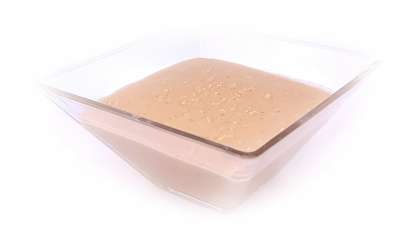
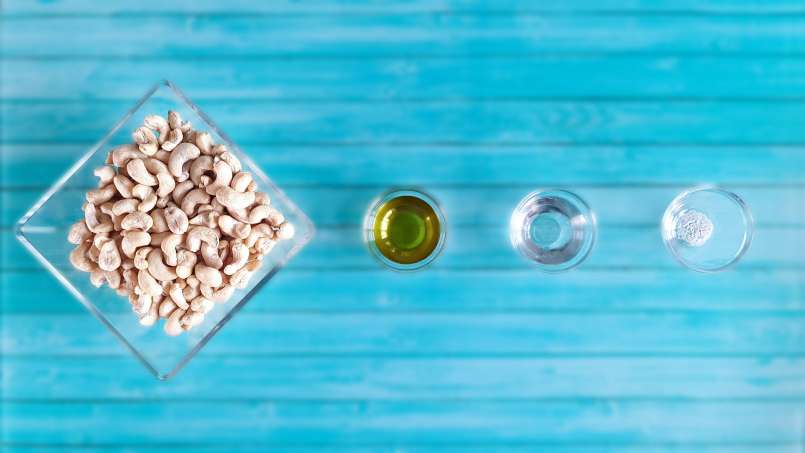
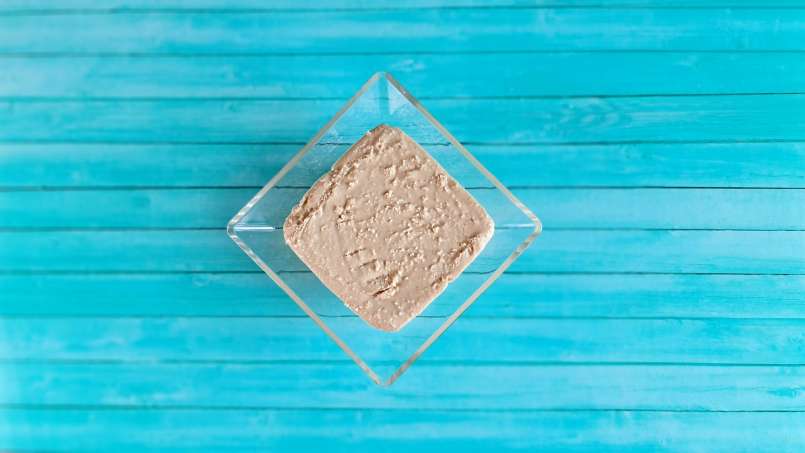
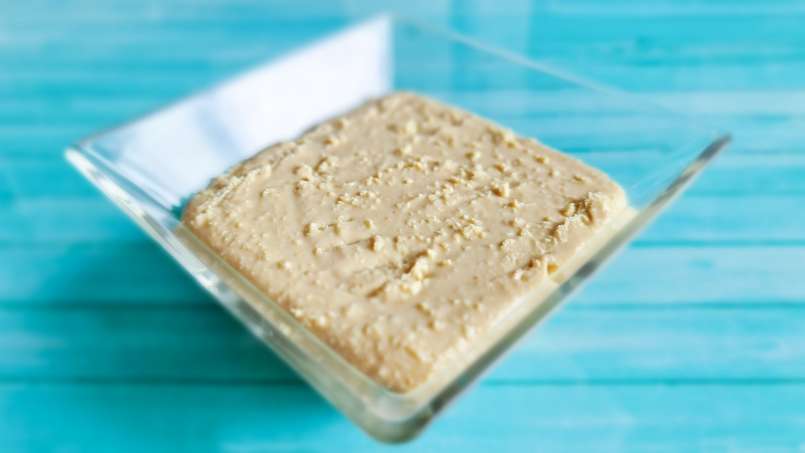
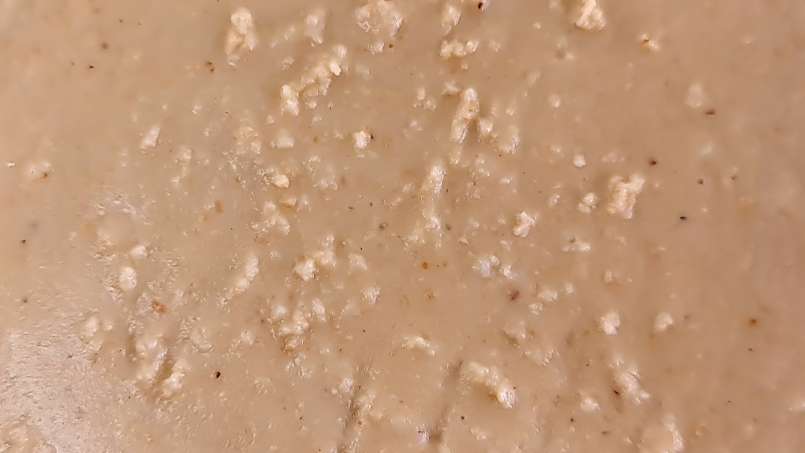
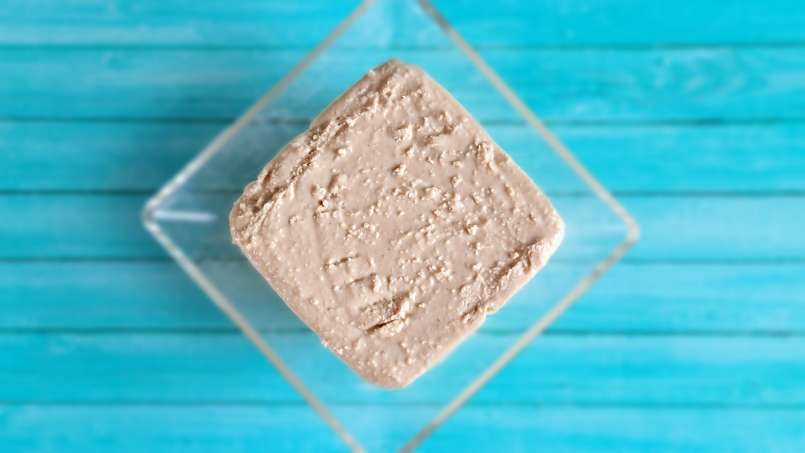
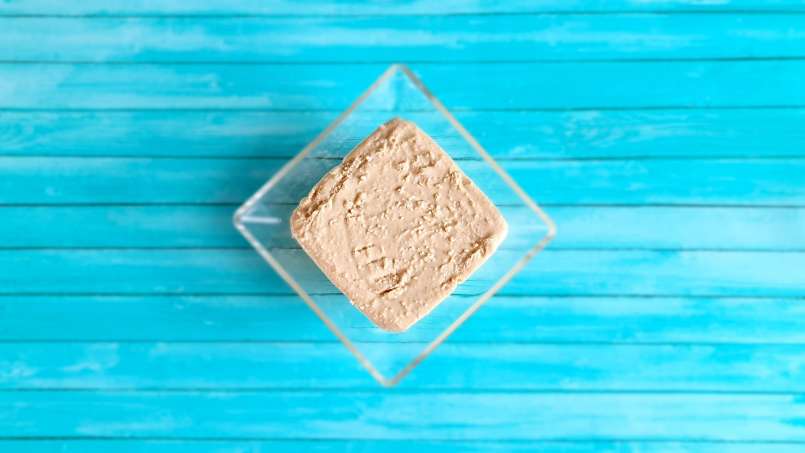
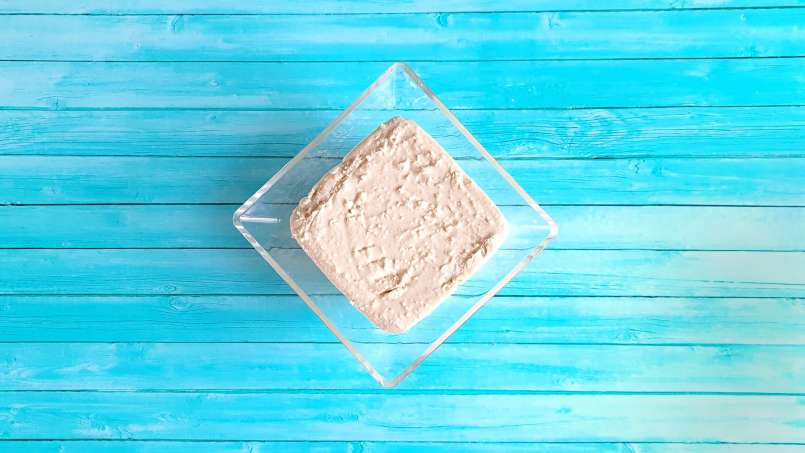
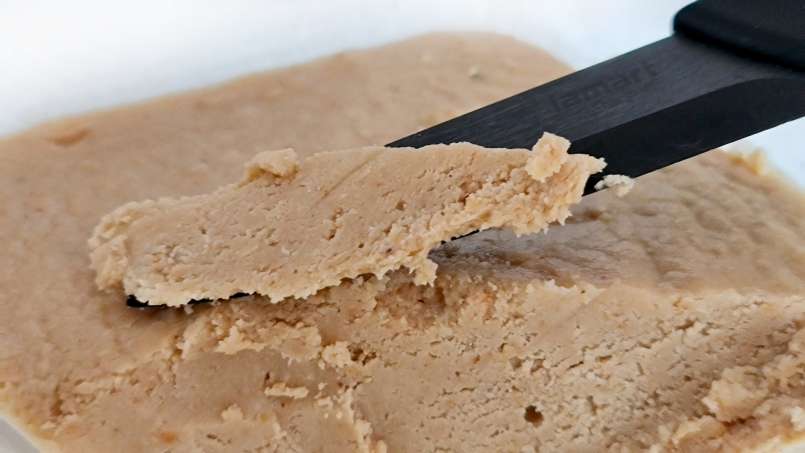
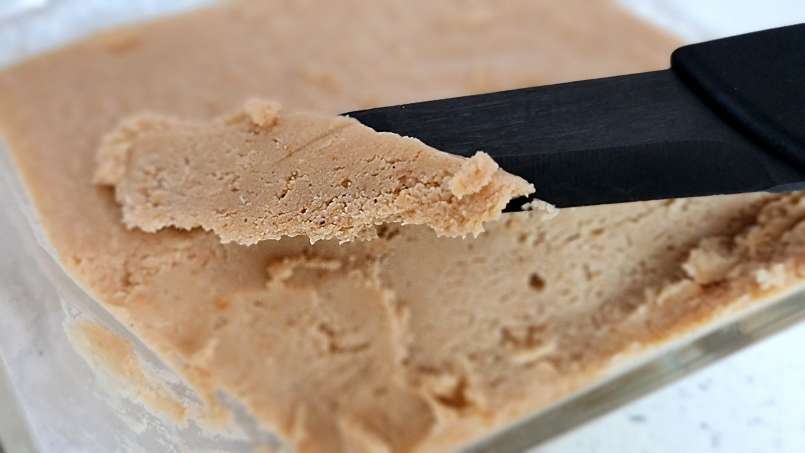
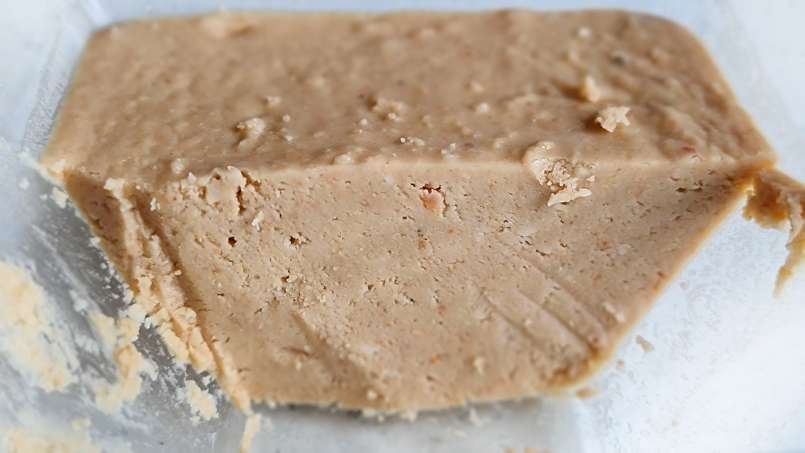
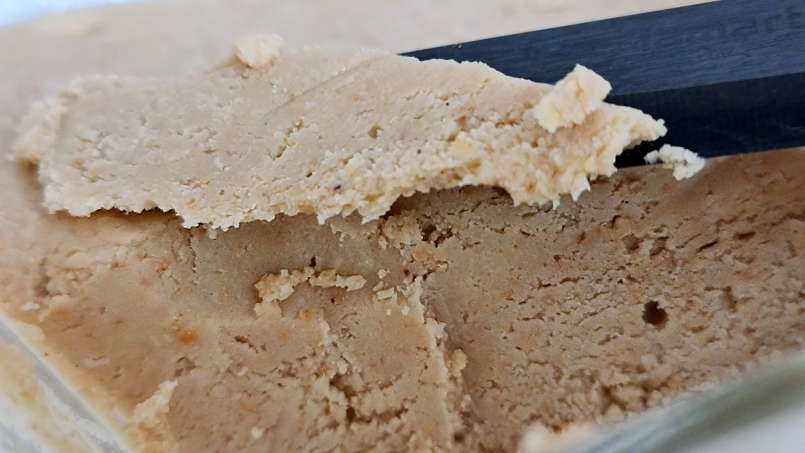
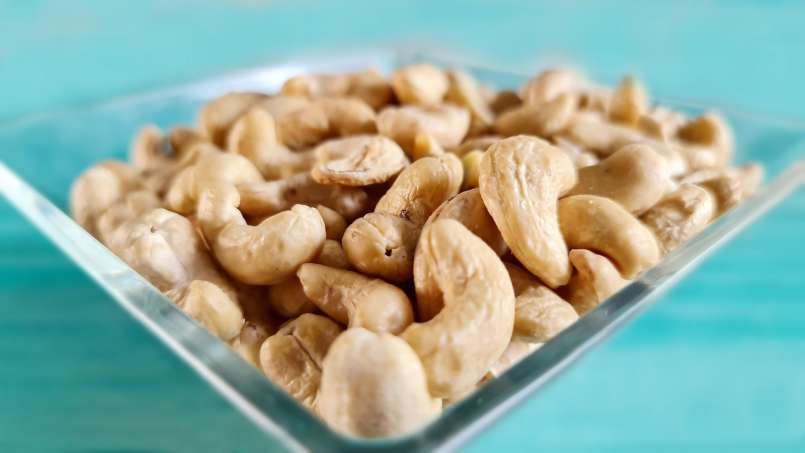
Comments